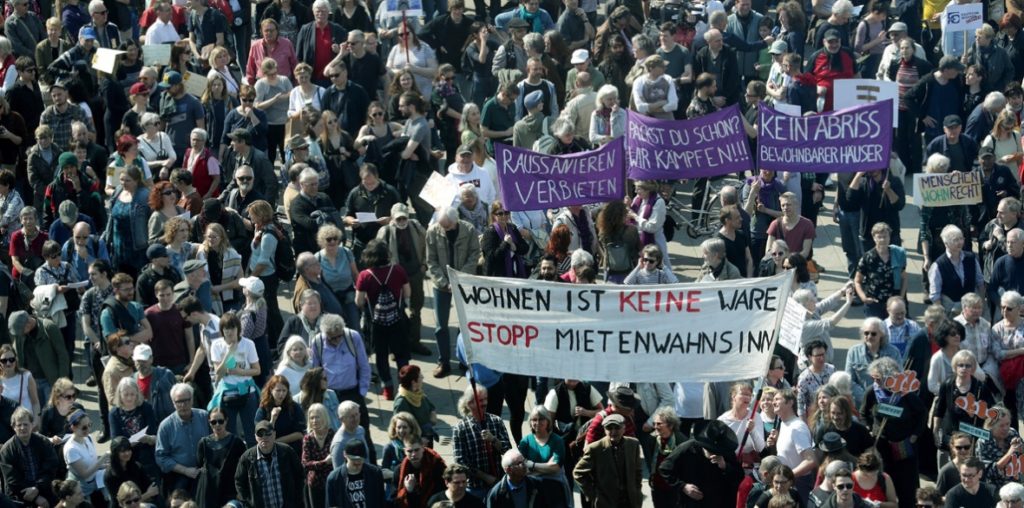
You have more in common with your fellow workers around the world than you do with you landlord. Whether in New Orleans, San Francisco, or Berlin, we are all facing a similar housing crisis, with the same causes. Rents are doubling or tripling, gentrification is pushing working class people out, landlords are evicting tenants so they can build more profitable apartments or short term rentals, and evictions are commonplace. Meanwhile, public housing has been replaced by watered down programs that benefit the landlords more than tenants and only increase gentrification. Those hit hardest are women, people of color, and immigrants.
This is as true in New Orleans today as it is in Berlin, and on April 7, tenants in Germany took to the streets to protest. Their demands are not for voucher programs or minor breaks, but for the rental properties owned by the biggest landlords to be taken back and returned to the people.
One group called Expropriate Deutsch Wohnen & Co. is working to enact a law that would ban any rental companies owning more than 3,000 apartments from operating in the city. Companies that would like to stay in Berlin, like Deutsche Wohnen—a company owning 100,000 apartments in the city— would be required to sell their excess housing units to the city for conversion into public housing.
The landlords claim they aren’t responsible for the rise in rents, but the people know who set the rates. People across Germany are organizing. Tens of thousands of people, including 25,000 in Berlin, marched demanding that the German government use Article 15 of the German constitution to acquire hundreds of thousands of units from Deutsche Wohnen & Co. and other major companies and turn them into social housing for the people.
